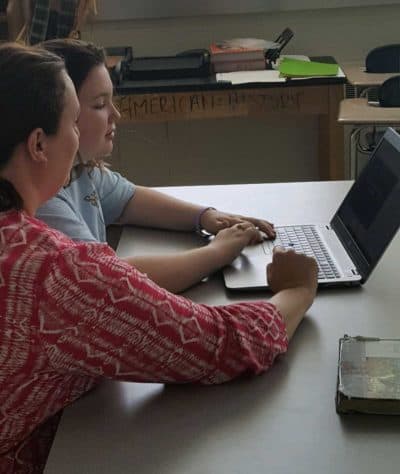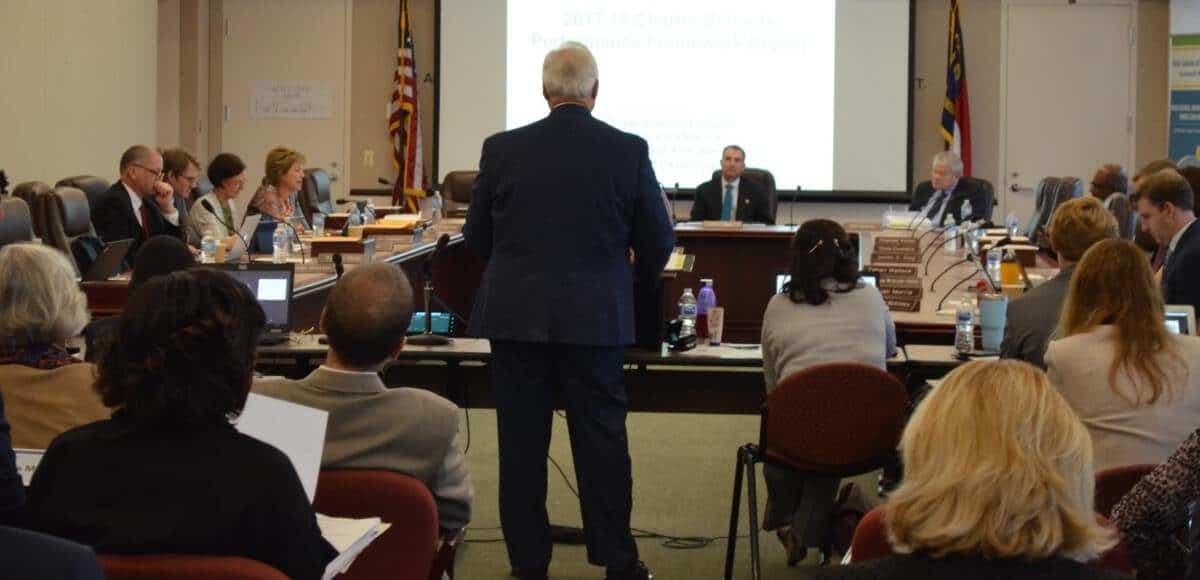

The first school in the Innovative School District (ISD) — Southside-Ashpole Elementary in Robeson County — is facing an uphill battle in its efforts to improve, but district leaders say they are ready to face the challenge.
The State Board of Education heard a presentation Wednesday on the school following last month’s release of the School Performance Grades in which Southside-Ashpole showed little improvement from the prior year when it wasn’t part of the district.
Since the whole purpose of placing the school in the district was to improve it, the grades were disappointing for education leaders. But Trip Stallings, who evaluated the school’s first year on behalf of the Friday Institute for Educational Innovation, said that a school can’t be turned around on a dime.
Stallings said that when his team met with the non-profit charter operator of Southside-Ashpole, Achievement for All Children, the operator’s leaders indicated they wanted to make large improvements relatively quickly. But Stallings said that operators must temper their expectations, advice he said applies to Southside-Ashpole as well as any future schools that enter the ISD.
“When you’re making your proposal, please be mindful of what the trajectory of change will look like,” he said.
The ISD, at its most basic level, is a program that was supposed to ultimately take five of the lowest-performing schools in the state and put them in a virtual district, which can be operated by outside operators, including for-profit charter or education management organizations. It originated in legislation passed during the 2016 General Assembly short session as lawmakers’ attempt to find an innovative way to turn around low-performing schools.
Under the ISD, Southside-Ashpole had a school performance grade score of 30, an F, and did not meet growth for the 2018-19 school year. In 2017-18, when the school was part of the Robeson County school district, it had a 29, an F, and also did not meet growth.
“The year one results were flat, not a lot of change from previous years, but we do feel like some groundwork was laid,” Stallings said.
He said that one of the weaknesses of the year one approach to turning around Southside-Ashpole was a too-conservative approach. While the changes made were good, they weren’t strong enough. He recommends that ISD operators implement bolder and more comprehensive changes to academics.
Stallings also said that school culture was one of the biggest challenges faced by the school this year.
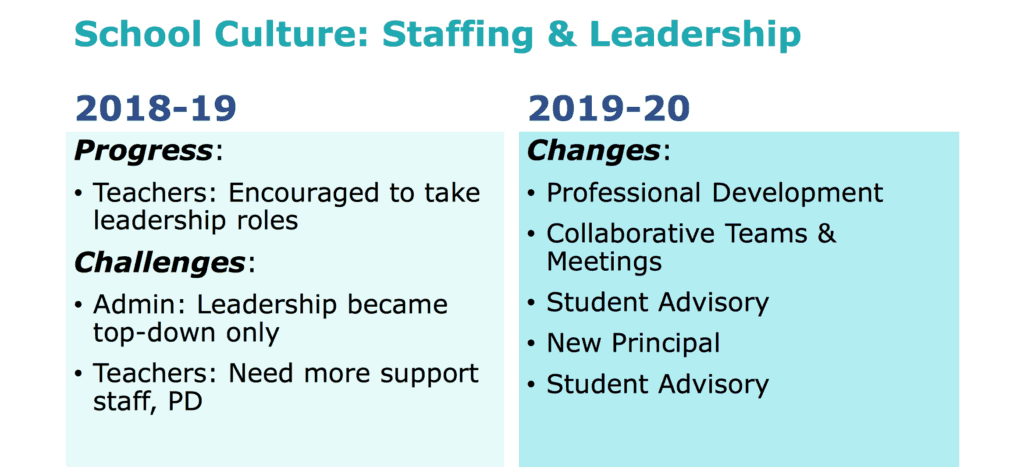

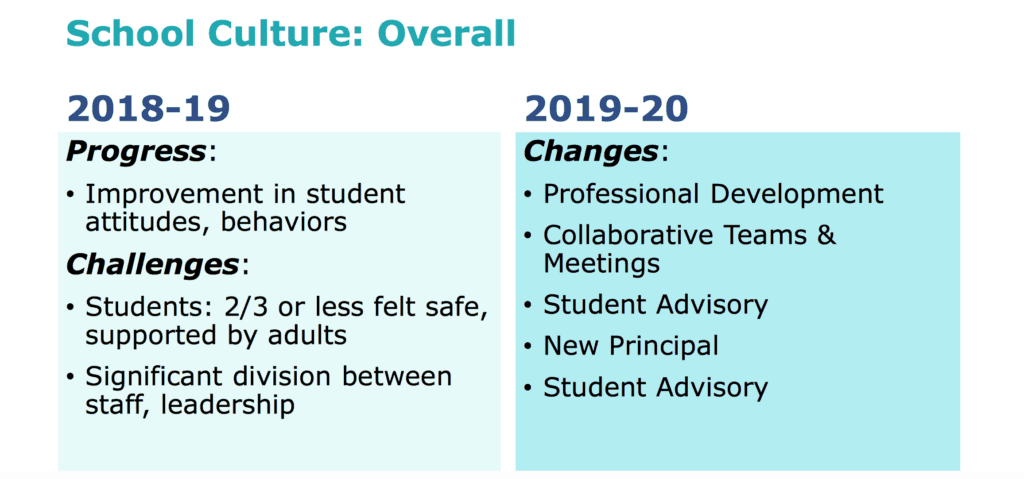

While the school did try to put teachers into leadership roles, even the administration said that by the end of the year, the structure was very top down, according to Stallings. And then there was how students felt about the school.
“Two thirds or less of the students reported that they felt safe or supported by the adults,” he said.
James Ellerbe, superintendent of the Innovative School District, presented to the State Board in tandem with Stallings, explaining some of the improvements being made to address the issues found by the Friday Institute.
On the culture piece, Ellerbe noted they have now put into place a student advisory committee, professional development, collaborative teams and meetings, and a new principal at the school. But, in fact, there has been a lot of turnover in leadership positions.
In the span of a few days over the summer, both Principal Bruce Major and ISD Superintendent LaTeesa Allen left the district with little explanation.
Allen was replaced by Ellerbe, who came from his previous role as director of administration and strategy at the Center for Responsive Schools (CRS). Ellerbe also worked for years with the Department of Public Instruction. Major was replaced by educator Kenneth Bowen. Achievement for All Children, the non-profit charter operator of Southside-Ashpole, also recently switched CEOs. Tony Helton is out and Tricia Cotham, a Democrat who previously served in the state House of Representatives, took his place.
In response to the poor academic growth and achievement of Southside-Ashpole, Ellerbe said new staff hires have been made, with an emphasis on teachers who are proven effective, as well as other changes.
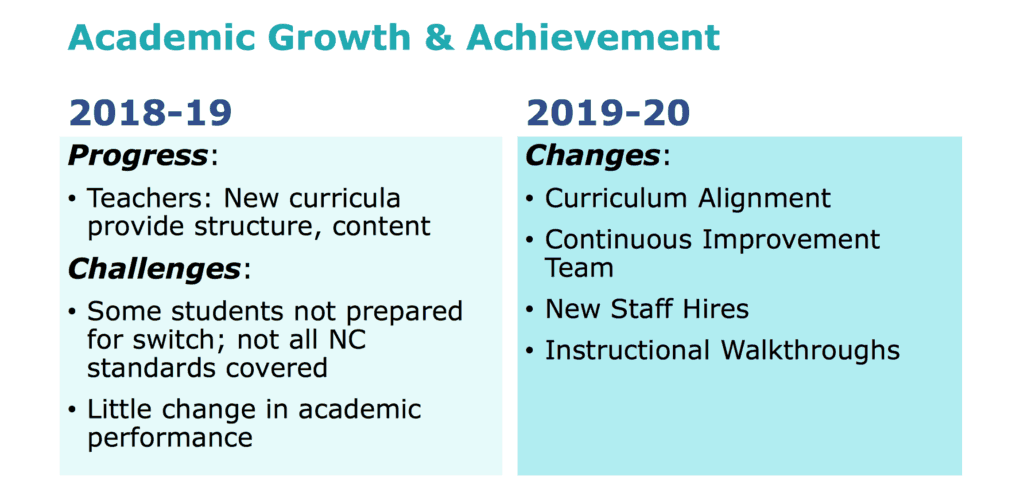

On learning conditions and student behavior, Stallings said that the school really struggled, with teachers eventually implementing their own alternate behavioral rules, which caused some chaos. Still, the attempt to institute behavioral rules at all was an improvement.
“It wasn’t clear that there were any there beforehand,” Stallings said. “This is where students struggled. Also where teachers struggled.”
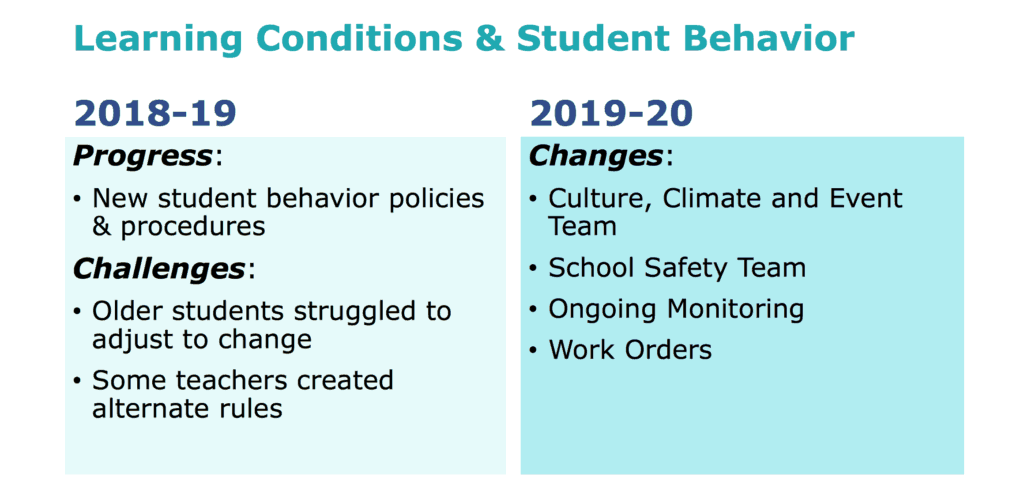

When it comes to community engagement, Stallings said there was a failure in communication.
“One of the challenges is communication about the actual academic plan,” he said, adding, “The parents also … were not as confident in their understanding of what their students were learning or why they were learning it.”
Ellerbe said efforts are underway to improve communication, including a parent/community advisory group.
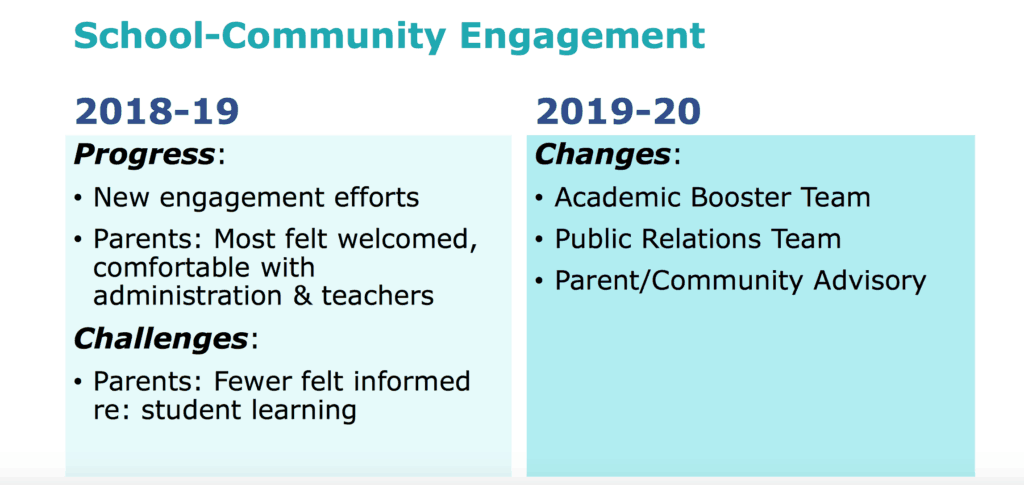

Ellerbe said the school enrollment stands at 215 students and announced that both staff and student attendance was at 99% last year.
Board member Amy White called out oversight as one area of weakness that she saw, but she included the State Board in that observation.
“Clearly one of the highlights of the presentation is lack of leadership and oversight provided,” she said. “It is our responsibility to provide that direction.”
Stallings said his team is working closely with Ellerbe and that he “feels good” about the changes that are being made. He was also quick to point out that the evaluation of Southside-Ashpole shouldn’t be considered an evaluation of the ISD as a whole. One school in one year is way too small a sample size to draw broader conclusions, he said. He did make some general suggestions regarding the ISD, however.
He suggested that the ISD schools need more planning time before opening in the new district, though he acknowledged that the timeline instituted in law doesn’t allow a lot of time for that. Southside-Ashpole opened in the fall of 2018, but the operator was only approved by the State Board earlier that year.
Under state law, the Board has to choose four new schools to join the ISD next year. But Board members are hard at work trying to get that changed in the legislature. The Board was slated to hear a presentation about the schools under consideration for the ISD next year but pushed it to the end of the meeting so members and Superintendent Mark Johnson could meet at lunch with lawmakers who are working on a bill to change some of the ISD requirements.
“We certainly appreciate you providing clarity and the data around what happened last year. We wish it were a glowing report,” White told Stallings. “You can see the glass half full or you can see it half empty. We can see it as an opportunity for improvement.”
That is why she said they are advocating with the General Assembly to get permission not to add any schools to the ISD next year.
“We will continue to maintain that stance,” she said. “We would like the opportunity for this to be successful. We need the chance to go back to the drawing board and get it right.”
White said after the meeting with lawmakers that no changes have yet been made.
“We’re hopeful. We’re really hopeful,” she said. “We’re begging.”
Under the current timeline, Ellerbe is supposed to return to the Board next month with a list of schools recommended to join the ISD next year.
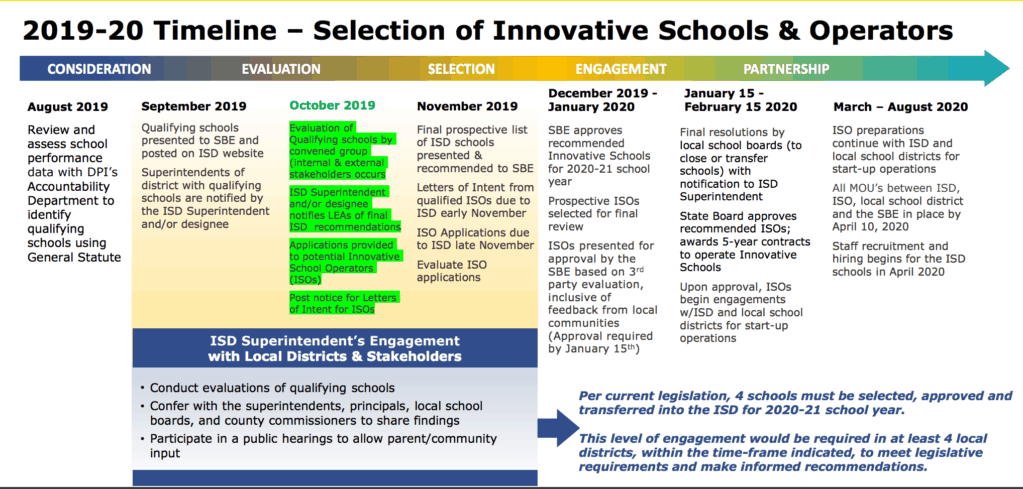

State Board of Education appointments
A joint session of the House and Senate approved three new members of the State Board Wednesday. One of them, J.B. Buxton, was already serving on the Board after being appointed by Gov. Roy Cooper to fill a vacancy. Appointments don’t require legislative approval if they’re to fill a vacancy.
Buxton was approved unanimously, which was in stark contrast to when he was nominated and came up for a vote in June 2018. Back then, he was rejected 98-64.
Buxton is a former state Department of Public Instruction administrator, a former high school English teacher, and has also served as education advisor to former Democratic Gov. Mike Easley and legislative director to the State Board of Education.
The State Board also approved Wendell Hall and Donna Tipton-Rogers.
Hall has served as president of the North Carolina School Boards Association as well as the North Carolina Association of School Administrators. Tipton-Rogers is the president of Tri-County Community College.
James Ford and Jill Camnitz, two current Board members appointed to fill vacancies at the same time as Buxton, didn’t get a vote. Until they do, they stay on the Board.


